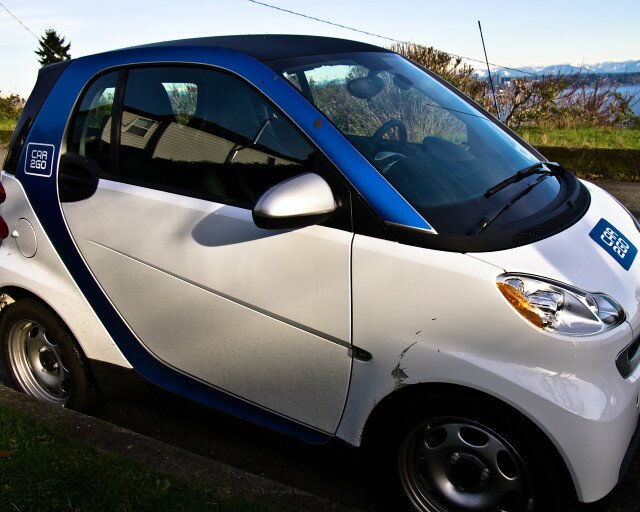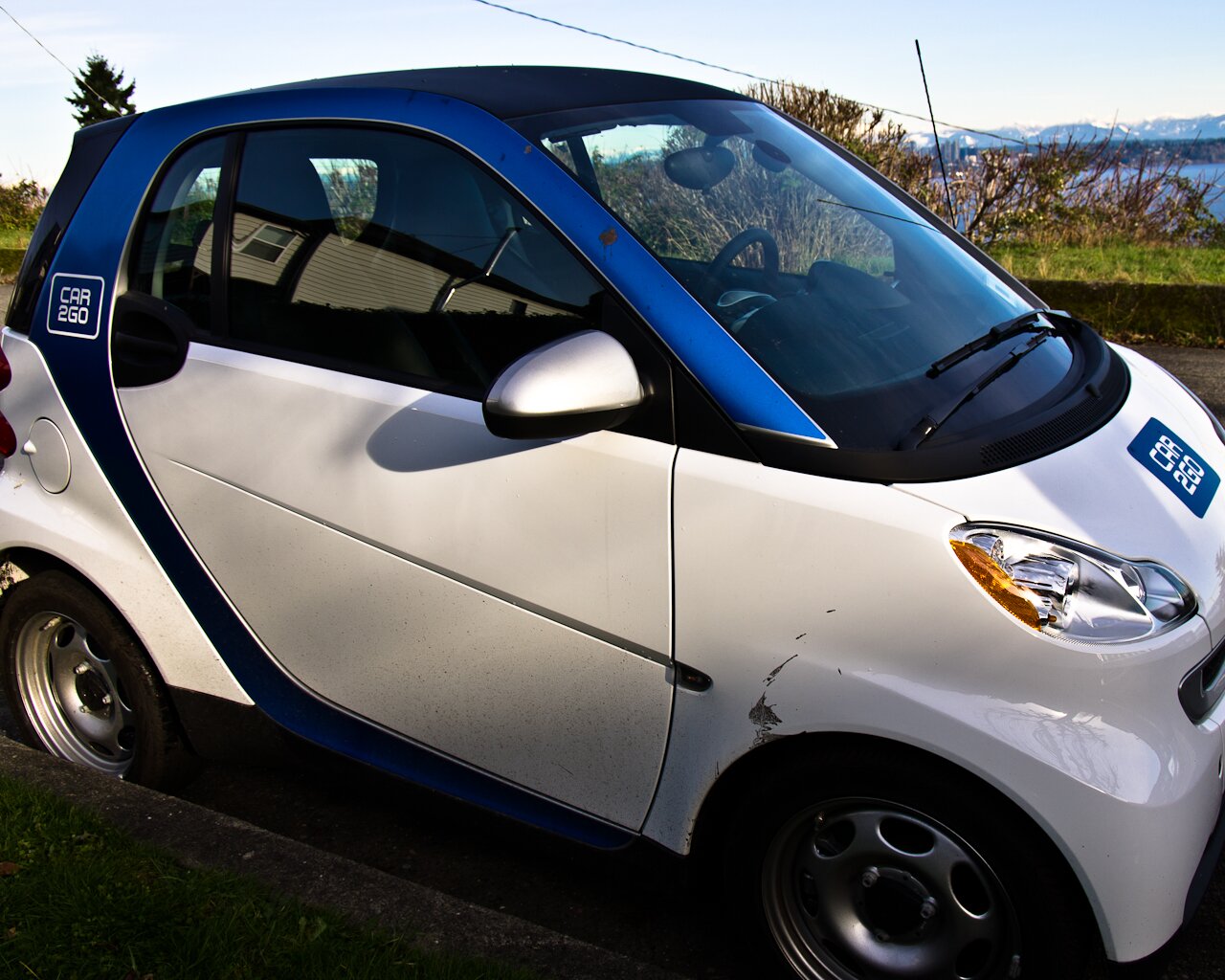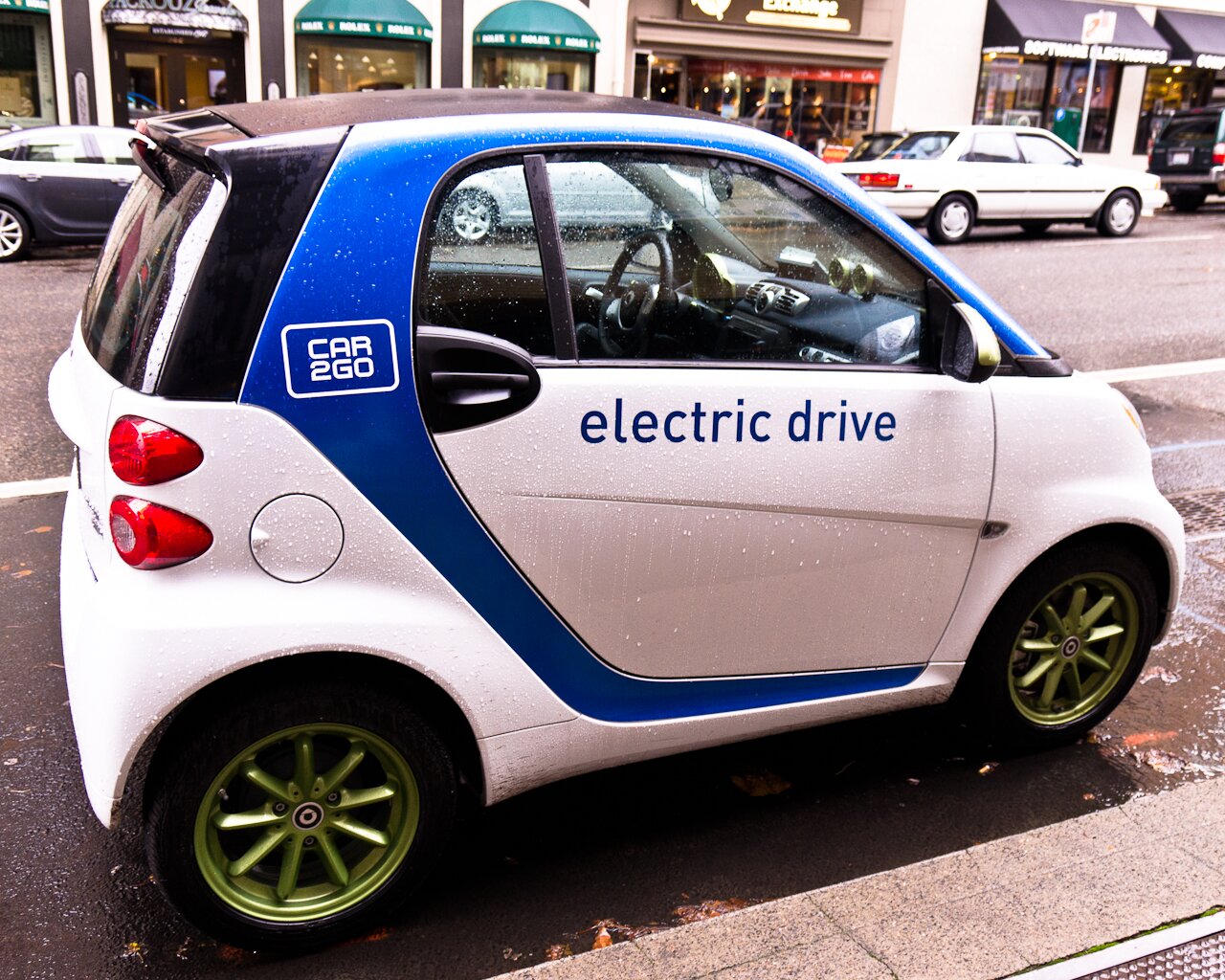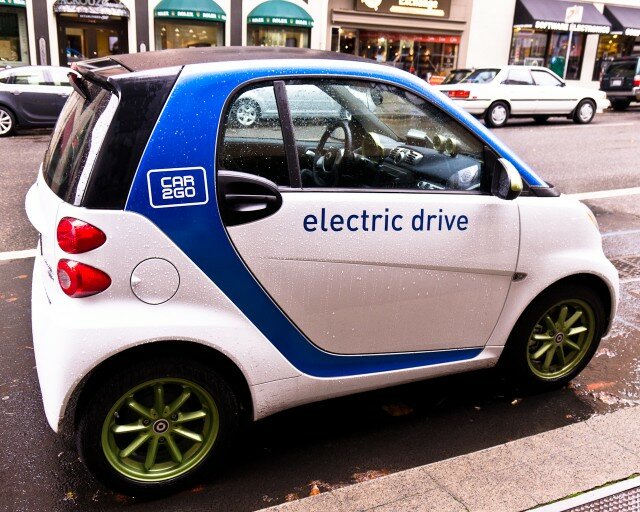
On December 19, 2012, car-sharing service Car2Go launched in Seattle, and has been adding cars to its fleet ever since. The full fleet will top out at 330 cars, non-electric versions of the Smart Fortwo. Seattle’s usage area — where you can park and leave the car in legal public parking areas — runs from North 130th Street (up by Haller Lake and Pinehurst) to South McClellan Street (before the West Seattle Bridge). At 38 cents per minute for the rental, you make a cheap short-term cabbie.
Not coincidentally, perhaps, the older car-sharing service Zipcar has just announced its sale to the Avis Budget Group for what amounts to $500 million. For Zipcar members (Did you know you’re called a “Zipster”?), the primary benefit would seem to be Avis’s intent to use its rental fleet to supplement Zipcar’s on the weekends, when demand for Zipcars is heaviest. One recent Sunday where I live, on Capitol Hill, I found the nearest Zipcar was on 6th Avenue downtown.
Avis also says they want to “leverage Zipcar’s technology to expand mobility solutions.” So who knows? Perhaps you’ll soon be able to drive off with a nearby Zipcar for a lower daily or weekly rate. (The deal is expected to be final by spring of this year.)
Over the weekend, I had the chance to try out Car2Go, in the perfect scenario for their point-to-point service. I was going to a holiday party over in the Mount Baker area, with an undefined end time. With a Zipcar reservation, you’re pressured to plan out your fun in advance — you have to let them know when you’ll be returning the car, and when it’ll be free for someone else.
With Car2Go, you just drive to where you want, park, and walk away– although you can “keep the meter running” if you want, like a Zipcar experience, but without having to change the length of your reservation. The trips, there and back, took about 12 minutes, for an average of $5.50 each way. No one else tried to snag the car, so I drove the same Car2Go back home and parked in front of my house, where I’d found it to begin with.
The total cost ($11.13) was almost exactly the price of a one-hour usage of a Zipcar, even though I’d spent two hours at the party, and left whenever I felt like it. It’s also nice to return at a reasonable pace, rather than driving like a bat out of hell while cursing red lights.
Not that you can drive a Fortwo like a bat out of hell — the gas-powered version is not speedy, and its automatic transmission has an unnerving lag between gears. The faster you accelerate, the more you notice the shifting transition, when acceleration vanishes. This quirkiness is one reason why Daimler has ended up fobbing off the Smart Fortwo on car-sharing fleets.
The experience of getting into a Car2Go is similar to Zipcar. There’s a card reader mounted on the windshield. On my first-ever use, it took three attempts to get the car to unlock — I eventually had to take the card out of my wallet and place it near the reader.
After a short delay — use it to walk around the car for a quick visual inspection — the car unlocked and I got in. A touchscreen asked me for my PIN, and to rate the condition of the car’s interior and exterior (happy face or sad face). The key, which you find next to the touchscreen, goes into a slot by the hand brake, not on the steering column.
When you arrive and shut the car off, the touchscreen asks you if you want to end your trip or keep the car in service. You note if you’ve run into anything, and then use your card once you’ve exited the vehicle to lock the doors.


